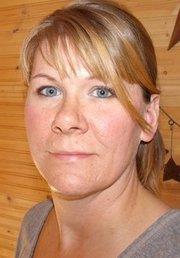Am I Cut Out for Medical Assisting?
Medical assisting may be the fastest growing healthcare profession in the United States, but it’s not for everyone. It takes a special type of person to work in healthcare. Luckily, medical assisting offers opportunities in both clinical and front office healthcare. If one type isn’t right for you, the other may be a better fit.
What Kind of Person Makes a Great MA?
For many medical assistants, they aren’t just assisting a physician; they are making personal connections that deeply impact relationships with their patients. As a medical assistant, you will get to know your patients on a personal level. You will be with them at challenging times in their lives, privy to very personal information and looked upon as someone to be trusted. Medical assistants carry a heavy and important responsibility to care for, support and protect the health of others.
Great medical assistants are:
- Patient and caring
- Helpful and organized
- Eager to learn and eager to listen
- Have steady resolve and are calm in hectic situations
- Are effective and flexible team players
- Trustworthy and honest
- Admit when they make mistakes and can take criticism and direction
- Are efficient multi-taskers
- Are not afraid to speak up when necessary
- Are physically and mentally fit for the rigors of the job
Some people may not realize they have needed qualities to be a medical assistant until they begin working as one. The challenge and responsibility that goes along with medical assisting can bring out the best in you, and help you realize abilities that you didn’t know you had.
What are the Drawbacks of the Job?
Any healthcare job that requires taking direct care of patients has its challenges. Medical assisting is no different. No matter if you work in the front office, the clinical office, or both, you’ll run into challenges on the job. Challenges are just that – a challenge. If you really desire to work in medicine and help people, you may not think of the challenges as anything other than demands of the job. However, if the drawbacks seem too distasteful to overcome, then medical assisting may not be for you. Some challenges medical assistants encounter every day include:
- Handling blood and body fluids, like urine, feces and sputum
- Assisting with personal examinations, like rectal exams or vaginal exams
- Dealing with difficult, irate or upset patients
- Handling many tasks at one time. Medical offices are notoriously busy places to work. Any one medical assistant may be juggling several patients at once, along with phone calls, charting, performing phlebotomy or giving injections and several other patient care responsibilities.
- Encountering emotionally trying situations, such as dying cancer patients, critically ill children or sudden cardiac arrest in the office. Medical assistants often care for terminally ill patients who make routine physician visits, or encounter patients who become acutely ill. Situations like these can be emotionally-charged and hard to handle.
- Working with varied personality types among physicians and other office staff.
- Working long hours on your feet, without consistent breaks or time to relax. Physician schedules often run late and a medical assistant may find it hard to take daily breaks.
What are the Benefits?
Just as there are challenges, there are many positive reasons to work as a medical assistant. Many people, who have entered medical assisting after having already worked in another field, find a sense of satisfaction and fulfillment in helping others. Benefits to working as a medical assistant include:
- Job security. Healthcare jobs are consistently growing and hiring. It is an essentially stable career market with consistent growth and demand.
- Versatility. If you get easily bored by doing the same tasks over and over again, medical assisting may surprise you. The job is not usually mundane and offers the ability to perform many different skills throughout the day.
- Personal satisfaction. Helping people is a gift. You’ll do it every day as a medical assistant. You’ll also be challenged to continually grow as a medical assistant—and as a patient educator and leader.
- Professional growth: Medical assisting is growing consistently as a career. This brings professional opportunity as well. You may have opportunities for advancement after gathering some work experience as a medical assistant.
- Non-stop learning. If you love to learn, medical assisting won’t disappoint you. Not only will you consistently learn from the physicians you work with, but the other experienced healthcare staff as well. And, because medical assistants are required to recertify their certification every five years, you’ll need to attend medical conferences and events to keep up.
How Can I Know for Sure?
You won’t really be sure if medical assisting is for you until you try. Luckily, you don’t have to spend a small fortune on medical assisting school, only to realize the profession is not for you! Consider a ‘shadowing program’ at a local clinic or technical school first.
A shadow program allows you to follow a medical assistant through her day so you can see if the job is right for you. You may be able to arrange this yourself by calling local clinics. Ask for the human resources department and then inquire if they offer the opportunity to shadow a medical assistant.
If you have a local technical college with a medical assisting program, you may be able to sit in on several classes to get a feel for the profession. They may also be able to assist you in shadowing a medical assistant for a day or two. Alternately, many medical assistants began as certified nurse’s aides or hospital volunteers before entering the medical assisting program. While not exactly like medical assisting, both of these options allow you a sneak-peek into clinical healthcare. In the end, take some time to research medical assisting fully before jumping in with both feet.

